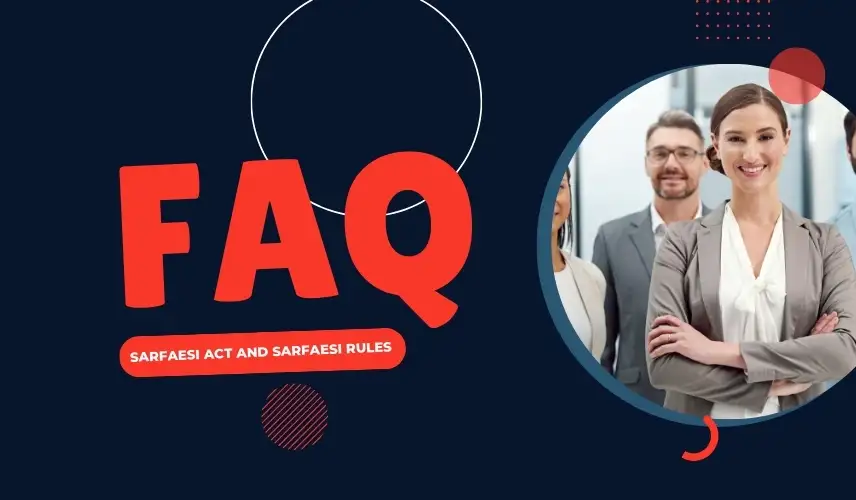
FAQ About Application to Debts Recovery Tribunal Under Section 17 of the Sarfaesi Act, 2002
Answer : The borrower including guarantor or mortgagor and any other aggrieved person may file the application under Section 17(1) of the Sarfaesi Act, 2002 before the Debts Recovery Tribunal within the local limits of whose jurisdiction-
(a)., the cause of action, wholly or in part, arises;
(b) where the secured asset is located; or
(c) the branch or any other office of a bank or financial institution is maintaining an account in which debt claimed is outstanding for the time being. Section 17(1A) of Sarfaesi Act, 2002.
Categories
Related FAQs
-

FAQ About Essential Pre- Conditios for Taking Sarfaesi Action
Know more about frequently asked questions [...]
-

FAQ About Demand Notice Under Section 13(2) of Sarfaesi Act, 2002
Know more about frequently asked questions [...]
-

FAQ About Borrower’s Representation/ Objection Against Section 13(2) Notice
Know more about frequently asked questions [...]
-

FAQ About Non-performing Assets
Know more about frequently asked questions [...]
-

FAQ About Assignment of Loan Account to Asset Reconstruction Company
Know more about frequently asked questions [...]
-

FAQ About Possession of Immovable Property
Know more about frequently asked questions [...]
-

FAQ About Sale of Immovable Property Under Sarfaesi Act, 2002
Know more about frequently asked questions [...]
-

FAQ About Redemption
Know more about frequently asked questions [...]
-

FAQ About Possession and Sale of Movable Properties
Know more about frequently asked questions [...]
-

FAQ About Application to Debts Recovery Tribunal Under Section 17 of the Sarfaesi Act, 2002
Know more about frequently asked questions [...]
-

FAQ About Appeals to Debts Recovery Appellate Tribunal Including About Pre-deposit
Know more about frequently asked questions [...]
-

FAQ About Taking Possession With the Help of District Magistrate/Chief Metropolitan Magistrate Under Section 14 of the Sarfaesi Act, 2002
Know more about frequently asked questions [...]
-

FAQ About Eviction of Tenants Under Sarfaesi Act, 2002
Know more about frequently asked questions [...]
-

FAQ About Powers of Debts Recovery Tribunal
Know more about frequently asked questions [...]
-

FAQ About Powers of Debts Recovery Appellate Tribunal
Know more about frequently asked questions [...]
-

FAQ About Registration of Security Interest, That is Mortgage/hypothecation
Know more about frequently asked questions [...]
-

FAQ About Assets for Which Sarfaesi Action Can Not Be Taken Including Agricultural Land
Know more about frequently asked questions [...]
-

FAQ About Taking Over of Management
Know more about frequently asked questions [...]
-

FAQ About Misc. Provisions of Sarfaesi Act, 2002
Know more about frequently asked questions [...]
